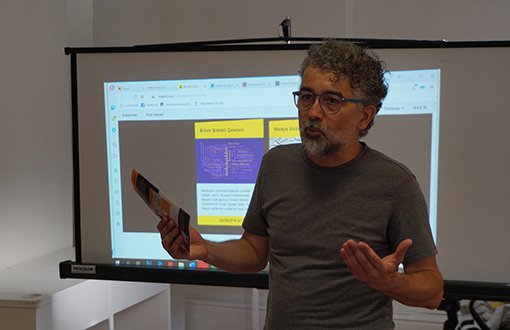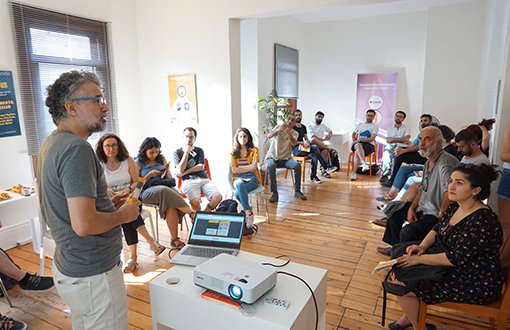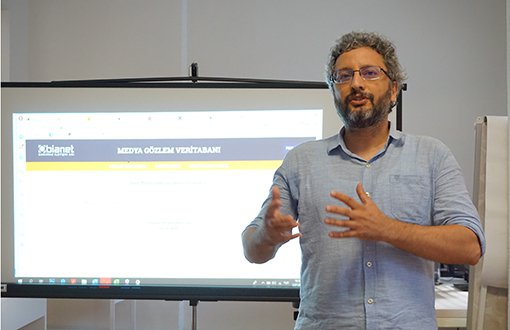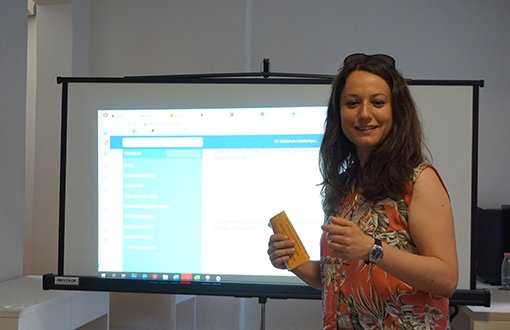MEDIA MONITORING DATABASE NOW ONLINE IN TURKISH
Erol Önderoğlu: People Had Better be Reminded of Crimes Against Journalists
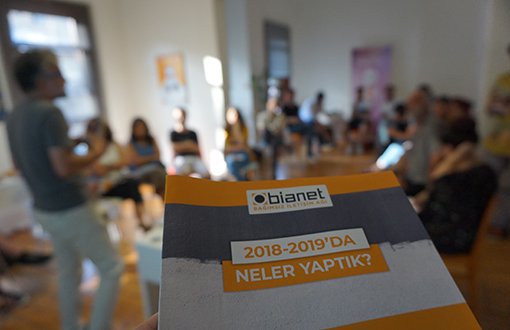
* Photographs: Murat Bayram / bianet
Click to read the article in Turkish
Documenting freedom of expression violations suffered by media workers and organizations since 2001, bianet Media Monitoring Reports are now catalogued in the bianet Media Monitoring Database.
The Media Monitoring Database, which is currently only available in Turkish, was opened with a launch event at BİA School on July 3, 2019.

Taking the floor at the launching ceremony, Reporters Without Borders (RSF) Representative to Turkey and Freedom of Expression Rapporteur to bianet Erol Önderoğlu shared information about the Media Monitoring Reports and the process of preparing and accessing the reports.
Asst. Prof. Ulaş Karan from Bilgi University, the academic consultant of the project, gave information about how the reports were transferred to a digital portal and how the system will operate. Lastly, lawyer Gülçin Kaner touched upon how the data were entered into the database.
CLICK - bianet Media Monitoring Database (Turkish)
Legal Journalism and Media Freedom Project |
|
|
We completed the Legal Journalism and Media Freedom Project in January 2018 - February 2019 with the support of the Swedish International Development Cooperation Agency (SIDA). The project was coordinated by Elif Ünal. In our round-table meeting that we organized with Civil Rights Defenders, we discussed legal journalism with journalists, lawyers, academics and rights defenders. Prof. Dr. Aslı Tunç talked about legal journalism from the perspective of an academic, Gökçer Tahincioğlu from the perspective of a journalist and Fikret İlkiz from that of a lawyer. "Judiciary in the News: Legal Journalism Handbook" of bianet is penned by Şengün Kılıç Hristidis, edited by Gökçer Tahincioğlu and translated into Kurdish by bianet Kurdî editors Murat Bayram and Ferid Demirel. CLICK - Legal Journalism Handbook Published Online in Turkish and Kurdish We prepared the Media Monitoring Database based on the bianet Media Monitoring Reports prepared by Erol Önderoğlu since 2001. The database has been opened as part of the Legal Journalism and Media Freedom Project. CLICK - Media Monitoring Reports (English) The academic consultant of the project is Asst. Prof. Ulaş Karan, its editor is lawyer Gülçin Kaner and visual designer is Ali Seçkin Karayol. |
The launching ceremony held at BİA School on July 3 started with the opening speeches of IPS Communication Foundation Chair Nadire Mater and bianet Chief Editor Demet Bilge Erkasap.
bianet Legal Journalism Project Coordinator Elif Ünal introduced the projects run by bianet on rights-based journalism over the last year.
Önderoğlu: There was a need for such a database
Taking the floor after Elin Ünal, Reporters Without Borders (RSF) Representative to Turkey and Freedom of Expression Rapporteur to bianet Erol Önderoğlu shared information about the preparation phase and objectives of the Media Monitoring Reports and the database:
"The most important point that attracted our attention while preparing these reports was the concentration of issues such as freedom of expression, dismissed journalists and impunity.
"We think that people had better be reminded of the importance of these issues, freedom of press and crimes against journalists. Thanks to these reports, we can also monitor which issues end in impunity."
"There was a need for such a database in Turkey. We see what people are deprived of as a result of standard information channels they are directed to. Seen in that light, these reports we have been preparing for a long time and, thus, this database are positive developments. We know that several media-related organizations are now embedded in the state structure in Turkey.
"The distribution of press cards and the distribution of punishments to media organizations and press members show that as well."
Karan: A system that can be used by everyone
Speaking after Önderoğlu, academic consultant of the project Asst. Prof. Ulaş Karan from İstanbul Bilgi University touched upon how the system was prepared and how it can be used.
In his presentation, Karan underlined that they tried to make the database easy to use for everyone, especially researchers and journalists.
Lastly, the editor of the database lawyer Gülçin Kaber mentioned how and with what method data were entered into the system (EÜ/SD).
AS THE CLIMATE AND WORLD CHANGE - 5
We will see beautiful days, coal-free and sunny days

School Strike for Climate in Ayvalık: Future Depends on What We Do Today

Legal Journalism Handbook of bianet Published Online in Turkish and Kurdish

Eylül Responds to Minister Selçuk: I Did Not Give up My Complaint
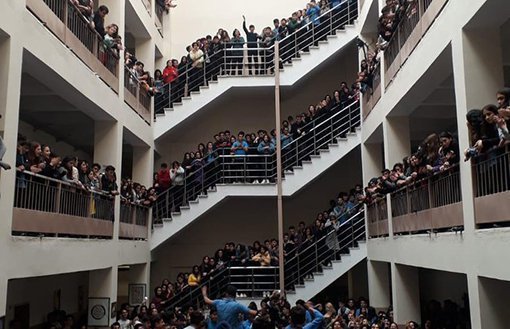
Teacher Facing Charge of Harassment Appointed to Another School






